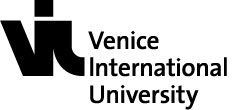June 10-15, 2024
Applications Closed
This PhD Academy will be led by:
- University of Bordeaux
- University of Padova
- University of Milano Bicocca
- University of Ljubljana
How to balance our energy needs with concerns for climate change, strategic dependence on a small number of fossil fuel suppliers and for energy poverty is one of the most profound and urgent challenges today.
As global economies move towards lower carbon energy futures, there is emphasis on developing new technologies. But the challenge of transitioning to a more sustainable, resilient, and equitable energy future is not just a technical one. It also requires to address collectively questions on how to create a better energy future for us all.
This calls for connecting scientific developments with social, economic, cultural and ethical considerations. Finding the routes to a sustainable energy future is therefore a multi-disciplinary task, where synergy among science, humanities, economics and social sciences are essential.
These connections are not often addressed in the training of the future players in the energy arena, like scientists, engineers, economists, environmental scientists, sociologists, political scientists, diplomats, journalists, communicators.
This course aims at providing fellows from various disciplines with a training opportunity, which merges science with society and delivers a grand view on the future of energy.
This project connects conversations about development of energy technology, with conversations about wider ethical implications of energy that consider its social, environmental, and geopolitical impacts.
We will use as a case study controlled thermonuclear fusion.
Faculty
Piero Martin, University of Padova
Paolo Giardullo, University of Padova
Lidia Piron, University of Padova
Giuseppe Zollino, University of Padova
Francesco Gnesotto, University di Padova
Dimitri Batani, University of Bordeaux
Alice Bellagamba, University of Milano Bicocca
Giuseppe Gorini, University of Milano Bicocca
Lucia Visconti Parisio, University of Milano Bicocca
Tomaž Gyergyek, University of Ljubljana
Shaul Bassi, University of Venice Ca’ Foscari
Davide Zanchettin, University of Venice Ca’ Foscari
Alessandra Fornetti, Venice International University
Ilda Mannino, Venice International University
Learning outcomes
The participants will be exposed to a grand view of the interaction between energy and society, starting from a case study which is now very popular in the public debate. The added value of this course is the transversal approach, which cuts across many aspects of the energy issue. On a fundamental topic for humanity, participants will broad their views out of the technical borders of their disciplines.
A “Science Tour” led by Piero Martin, a scientist living in Venice, will be organized: Venice is in fact famous for its artistic and cultural heritage, but less is known about the strong relationships of the city with science history.
Who can apply?
This international PhD Academy is offered to PhD students, post-docs, and junior researchers, in the fields of hard sciences, engineering, social studies, economics, political sciences, diplomatic studies, psychology, philosophy, and literature.
Fees & grant support
Students from the VIU member institutions will pay no participation fees. Grant support is also available to support, partially or fully, the costs of international travel; accommodation on campus, in shared rooms, will be offered.
External candidates admitted to the PhD Academy will pay fees (further information available in the brochure). VIU Alumni are eligible for a reduced fee.
Applicants must submit the (1) application form, (2) a letter of motivation – which should include a short bio and a brief description of the candidate’s research project, (3) a curriculum vitae, and (4) a photo.
For further information please download the brochure and the program or write to: phdacademy@univiu.org
A Roundtable on the Future of Fusion Energy with the participation of eminent international experts will be organized as closing event on June 15, with the support and scientific contribution of Eni.
Main sponsor






















